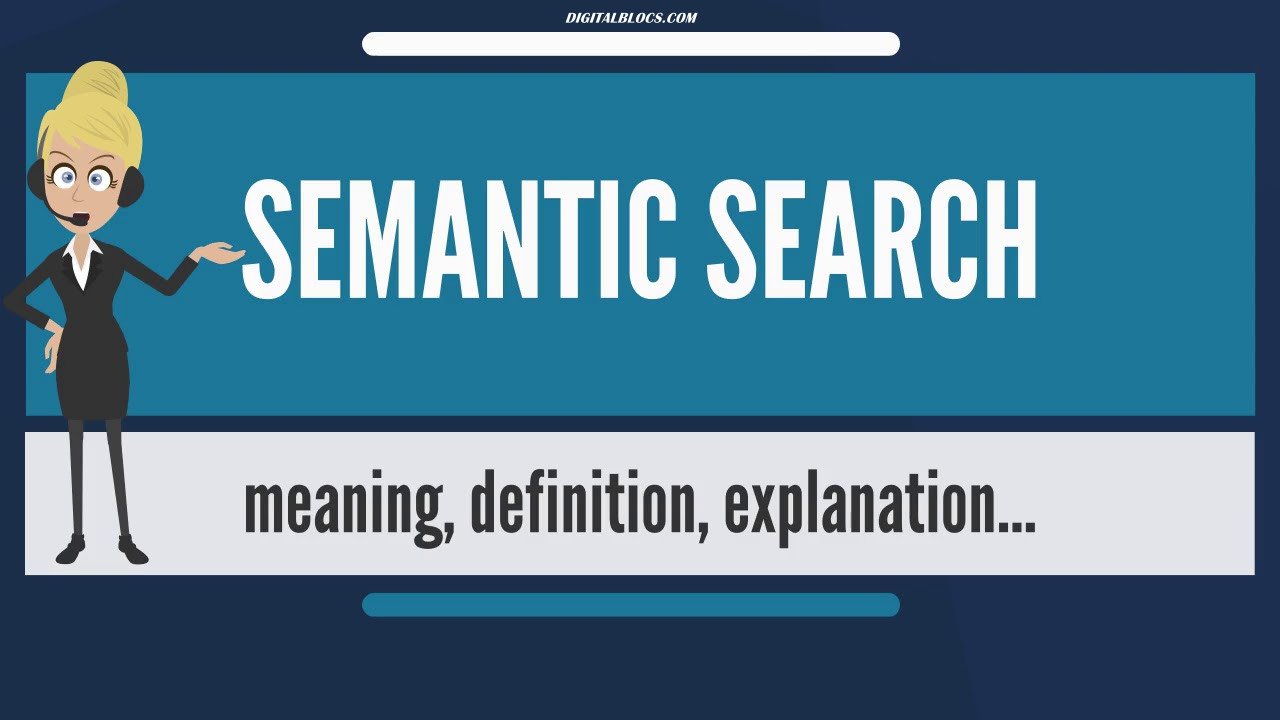
What Is Semantic Search and Why Does It Matter for SEO?
Semantic search is now essential for SEO since search engine technology has progressed. Learn what it is, why it matters, and how to optimize for it.
Many things have changed since 2010 when SEO was all about getting as many backlinks as possible and including as many keywords as possible.
The emphasis in 2021 has shifted to understanding intent and behavior, as well as the framework – semantics – that supports them.
As search engine comprehension has increased, so has our approach to optimizing for it. The days of reverse-engineering content to improve rankings are passed, and just researching keywords is no longer adequate.
Now you must understand what those terms mean, provide a rich context for those phrases, and properly understand user intent.
These elements are crucial for SEO in the age of semantic search when machine learning and natural language processing help search engines better grasp context and consumers.
This post will explain semantic search, why it is crucial for SEO, and how to optimize your content for it.
What Exactly Is Semantic Search?
Semantic search refers to a search engine’s endeavor to produce the most accurate SERP results possible by comprehending searcher intent, query context, and word relationships.
This is significant because:
- People say and question things in different ways, languages, and tones.
- Search inquiries can be unclear.
- It is necessary to comprehend the links between words.
Entity interactions, as well as human decisions and connections, are critical.
Google spends a lot of money on patents related to this. When a person searches for something similar, Google provides several options/websites for the user to examine.
In layman’s terms, semantic search seeks to understand natural language like a person would.
Semantic search also allows Google to distinguish between diverse entities (people, places, and things) and comprehend searcher intent based on a variety of factors such as:
Expand your business now by hiring qualified freelancers.
Fiverr Business enables your team to communicate and delegate work to the world’s largest pool of talented freelancers for any need.
- The user’s search history.
- The user’s location.
- History of global searches.
- Different spellings.
All of this contributes to Google’s objective of providing a better experience for its consumers by delivering quality information and prioritizing relevant content results.
What Effect Does Semantic Search Have on SEO?
Users are increasingly resorting to voice search.
The rise of voice search has had an impact on the progress of the semantic search.
Voice instructions on mobile devices are becoming more common, with 33 percent of high-income households using voice commands on devices other than their own “frequently” or “very often.”
When optimizing for voice search, you must get to the point fast (for intent-based searches) and make your content much more conversational.
What You Are Able To Do
Before delving into more specific information, provide material at the top of the page that answers a frequent question simply and clearly.
Structured data may help search engines grasp your content and context.
A sporting goods company, for example, may design a checklist of items to bring for a day hike, followed by information about local wildlife, fishing and hunting regulations, and emergency contact information.
The emphasis shifts from keywords to topics
It’s past time to stop creating content around keywords. Consider significant subjects in your field that you can completely discuss. The goal here is to give resources that are comprehensive, one-of-a-kind, and of excellent quality.
What You Are Able To Do
Instead of dozens of small, disjointed pages, each with its own topic, try building “ultimate guides” and more complete resources that your readers will find useful.
The importance of searcher intent grows
One of the most successful keywords targeting approaches is intent targeting, rather than keyword targeting.
You may discover a collection of topics for developing content around by examining the queries that lead people to your website.
What You Are Able To Do
Make a list of keywords and categorize them according to user intent.
Once you understand searcher intent, begin developing content that specifically meets their purpose rather than materially based on particular keywords or general subjects.
Technical SEO is just as important as content SEO
Despite Google’s shift from strings to objects, the algorithm isn’t yet intelligent enough to deduce meaning or comprehension on its own.
You must still optimize your site and assist Google in understanding your content.
Keywords
Yes, keywords are still important. Use a content analysis tool to look for typical inquiries and associated long-tail keywords to include in your article. Include keywords in your title tags, URL, body, header tags, and meta tags as needed.
Creating links
Backlinks from authoritative sources continue to be one of the most essential ranking signals. Prioritize material that gets links naturally. Remember to employ suitable internal linking structures to generate deep ties to other useful material you’ve published.
Data that is structured
Use Schema markup to assist customers in finding your company and search engines in indexing your site. You may also provide extra detail using review and organization markup.
Errors
When feasible, avoid redirects and instead rely on 301 redirects for missing pages. You should only have one redirect per page. Also, for multiple versions of your website, use rel=canonical tags.
The site’s speed
Minify resources, compress photos, use browser caching, and follow Google’s checklist for website performance optimization.
Improve the site’s structure
Maintaining a logical site layout will aid search engines in indexing your website and comprehending the relationship between your content. Sensible site architectures also boost UX by guiding people around your website in a logical manner.
The emphasis shifts to the user experience
In the age of semantic search, user pleasure should guide all of our SEO activities. Google is concerned about customer pleasure, and they are constantly fine-tuning their algorithm to better comprehend and please searches. SEO practitioners should also consider user experience.
What You Are Able To Do
Improve page speed as much as possible, ensure that your mobile site is optimized (particularly now that Google favors mobile sites for indexing), and monitor metrics such as bounce rate and session length.
Conclusion
Understanding how Google intelligently recognizes intent is critical for SEO. When generating the content, keep semantic search in mind. In addition, keep in mind how this interacts with Google E-A-T principles.
Mediocre content and old-school SEO tactics just won’t cut it anymore, especially as search engines improve their knowledge of context, idea linkages, and user intent.
Content must be relevant and of good quality, but it must also be focused on searcher intent and technically optimized for indexing and ranking.


